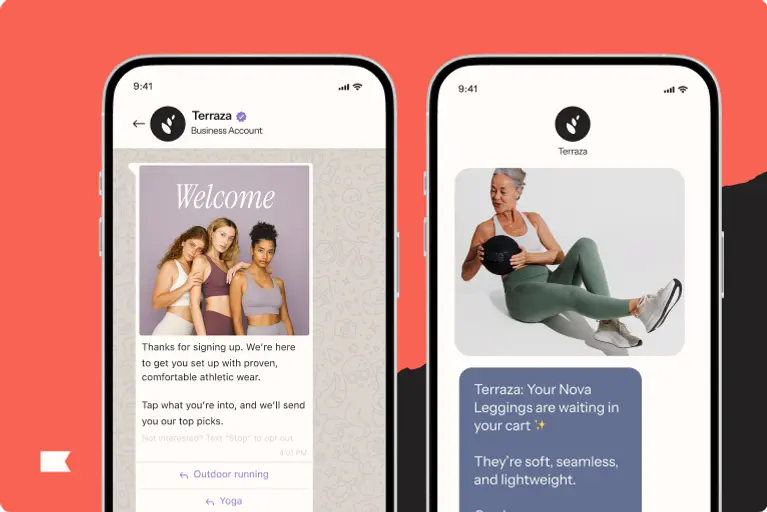This post is for general informational purposes only and is not legal advice. Please consult your own counsel before making decisions about SB 140 compliance.
If you’re not sure whether your brand needs to register in Texas in light of the Ecommerce Innovation Alliance’s (EIA) recent settlement with the Texas Attorney General and Secretary of State, you’re not alone.
While the settlement offers helpful clarification, and significantly reduces the risk of government enforcement of SB 140 by the Texas government, the potential for litigation by members of the public still exists.
For marketers, this means it’s not time to drop your guard. The best strategy remains what it’s always been: maintaining a compliance-first approach by registering if you are not exempt until a court confirms the Attorney General’s opinion or the Texas legislature changes the law.
What actually changed
On November 6, 2025, the EIA announced that it reached a settlement with the Texas Attorney General and Secretary of State over the state’s SMS registration requirements. The full settlement has not been made public, but the EIA explains that it includes:
- The Texas Secretary of State will add an FAQ to its website clarifying that businesses sending marketing texts with consumer consent don’t need to register.
- The Secretary of State will ask the Attorney General to issue a formal opinion supporting that interpretation.
- Businesses that filed registration applications but haven’t been approved can withdraw those applications and request refunds.
Importantly, this new guidance will apply broadly to all businesses engaged in consent-based marketing, not just EIA members.
What hasn’t changed
SB 140 is still on the books. That means Texas law continues to include registration and bonding requirements for any business contacting Texas consumers with marketing text messages.
The Attorney General’s forthcoming interpretation that consented marketing is exempt may be persuasive, but it is not legally binding. Texas courts aren’t required to follow it, and private plaintiffs can still bring cases arguing that the Attorney General’s opinion is wrong and that the registration requirement applies even to messages sent with a consumer’s consent. Plaintiffs and their counsel may be motivated to test the Attorney General’s opinion since SB 140 allows for the recovery of up to $5,000 per promotional message sent to Texas consumers without being registered.
Until a court definitively rules that consent-based marketing is exempt, or the Texas legislature amends SB 140, the safest path remains registration if your business is not exempt from the registration requirements.
Why Klaviyo continues to take a compliance-first stance
At Klaviyo, our primary goal is to make sure our customers are protected and can make informed decisions.
Since SB 140 was introduced, Klaviyo has taken a cautious, evidence-based approach to compliance in Texas. We’ve consistently advised customers to register unless they fall under a clear exemption and to invest in strong consent practices like double opt-in.
That approach hasn’t changed because the fundamentals haven’t changed. The EIA settlement does not block private enforcement and it does not guarantee how courts will interpret the law.
Where some see this as the end of the issue, Klaviyo sees it as the next phase of an evolving landscape. We’re continuing to monitor developments and will update our recommendations as soon as the Texas Attorney General’s formal opinion is released.
What marketers should do now
The settlement offers helpful clarity and momentum towards a conclusive resolution, but marketers should still proceed with care. Here’s what Klaviyo recommends:
- Review and strengthen consent flows: Make sure your opt-in process clearly proves that each recipient agreed to receive texts. A double opt-in—where someone confirms enrollment from their own phone—is the strongest evidence of consent.
- Stay registered if you’re unsure: If your business actively texts Texas consumers and your exemption status isn’t crystal clear, maintaining registration remains the safest option.
- Use Klaviyo’s Texas filtering feature: While you finalize registration or review your strategy, Klaviyo customers can use Texas area code filtering to pause promotional SMS sends to Texas numbers. This helps you stay active while managing risk.
Klaviyo’s ongoing leadership
Our focus is and always has been on giving marketers confidence to grow responsibly.
Klaviyo’s legal and product teams are continuously monitoring Texas developments and other state-level marketing laws. Klaviyo will continue to provide updates and product guidance as new developments emerge.
If you have questions about your Texas SMS setup, reach out to your Klaviyo CSM or account representative.




